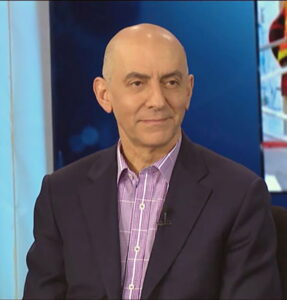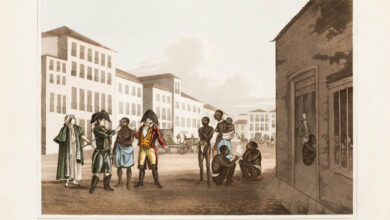It’s getting harder to put food on the table
Our everyday lives have been affected by the turbulent economic scenario the world, Canada included, is facing right now. Recently, the inflation has reached the highest rate in this country’s history and the uncertainty provoked by Russia’s invasion in Ukraine was one of the factors that pushed prices of essential products, such as gas and food, to a record high. Before that a lot of Canadians already struggled to pay the monthly bills and to make ends meet, but now the situation seems to be getting worse.
A recent report from Food Banks Canada gave us a dimension of the crisis. Last march, 1.5 million people went to food banks to guarantee their families would have something to eat—they couldn’t afford to buy food. It’s as simple and cruel as that. In Canada, the numbers are staggering and according to economic experts a recession is on the way.
To discuss and shed some light on this topic, we interviewed Pedro Antunes, the Chief Economist of the Conference Board of Canada, Canada’s largest independent, not-for-profit applied research organization. In simple terms he explained why food prices are still rising, what we can expect for the coming months, what a recession means to our economy and how to best prepare ourselves for that scenario, if there’s a way, after all.
 Milénio Stadium: Recently, a report from Food Banks Canada indicates that food bank usage across the country hit all-time high, nearly 1.5M visits last March. When Canada, which is considered a rich country, reaches that situation, where people don’t have money to buy food, what does that mean? How do you analyse that on an economic perspective?
Milénio Stadium: Recently, a report from Food Banks Canada indicates that food bank usage across the country hit all-time high, nearly 1.5M visits last March. When Canada, which is considered a rich country, reaches that situation, where people don’t have money to buy food, what does that mean? How do you analyse that on an economic perspective?
Pedro Antunes: I don’t think I can comment on the report from Food Bank except to say that high inflation does hit lower income households harder. We’ve had stable 2% inflation for over 30 years and now, with inflation ramping up very quickly, there’s no doubt that some households are having trouble keeping up.
MS: Why are food prices so high in 2022? Are inflation and the Ukraine war the only ones to blame?
PA: It’s not just the war. Agricultural production has been affected by weather issues over the past few years. For example, Canada’s 2021 grains harvest was badly affected by drought, but there have been problems in food production in many other major food producing nations. Oil price increases also contributed to higher food prices because of increased transportation costs. And of course, food prices spiked when Russia invaded Ukraine because Ukraine is an important exporter of grains and oilseeds. The situation is precarious right now because oil prices are rising again, and Russia has reneged on its deal to allow Ukraine to export grains.
MS: Most people that are struggling to buy food, according to Food Banks Canada report, are the ones with fixed-income, seniors, students, people with disabilities and children. What can the different levels of governments do to help these groups?
PA: I certainly worry about the Food Bank’s reporting that there are more people in need. And it makes sense that this is having the most impact on people that are vulnerable and likely unable to work. We know that federal government programs like the Canada Child Benefit, Old Age Security and others have successfully reduced poverty among children, single parents and seniors. At a time when the economy requires cooling to reduce inflation, it’s important to be targeted if we want to deliver relief from inflation. Measures should be income tested.
MS: Some experts are saying that a recession is coming. Is that inevitable?
PA: We’re quite certain that a slowdown, or rather a pause to economic activity, is coming over the next few quarters. And, quite possibly, we could see small declines in GDP. But this slowdown in economic activity is exactly what government policy is trying to achieve (at least government monetary policy) by raising interest rates. A “soft landing” is meant to help reduce inflation back to the government’s target range. The bigger risk is that central banks are not successful in reducing inflation, continue to raise rates, resulting in a much harder landing down the road.
MS: If a recession is confirmed what would it mean to our economy and how to best prepare ourselves to that scenario?
PA: We expect that the cost of this economic slowdown will not result in massive job losses like some past recessions. This is because Canada’s labour market is very tight, the unemployment rate is at record lows, and employers are desperate to fill nearly a million vacancies. This situation should help buffer the impact of weaker economic activity on employment. While that is good news for some workers, we do expect job losses in coming quarters. There are many important risks facing household, the best advice is to hold off on spending on things that aren’t necessary, and avoid taking on new debt, if at all possible, this is a time for prudence.









Redes Sociais - Comentários